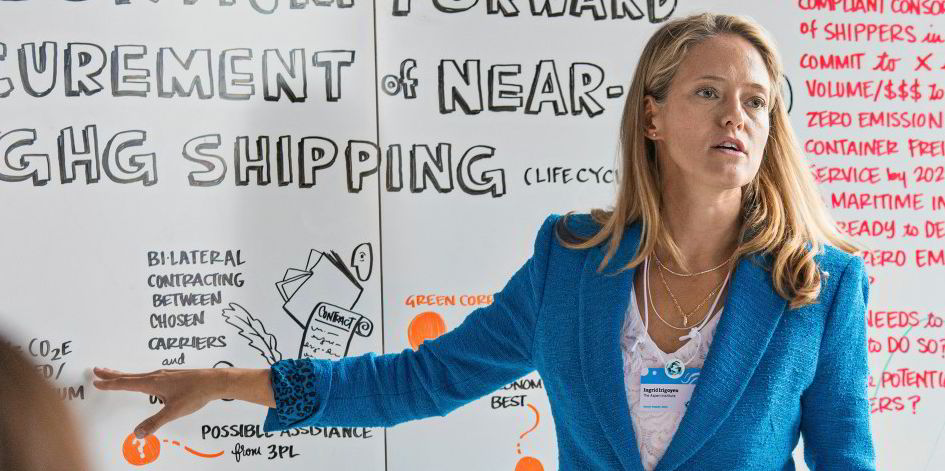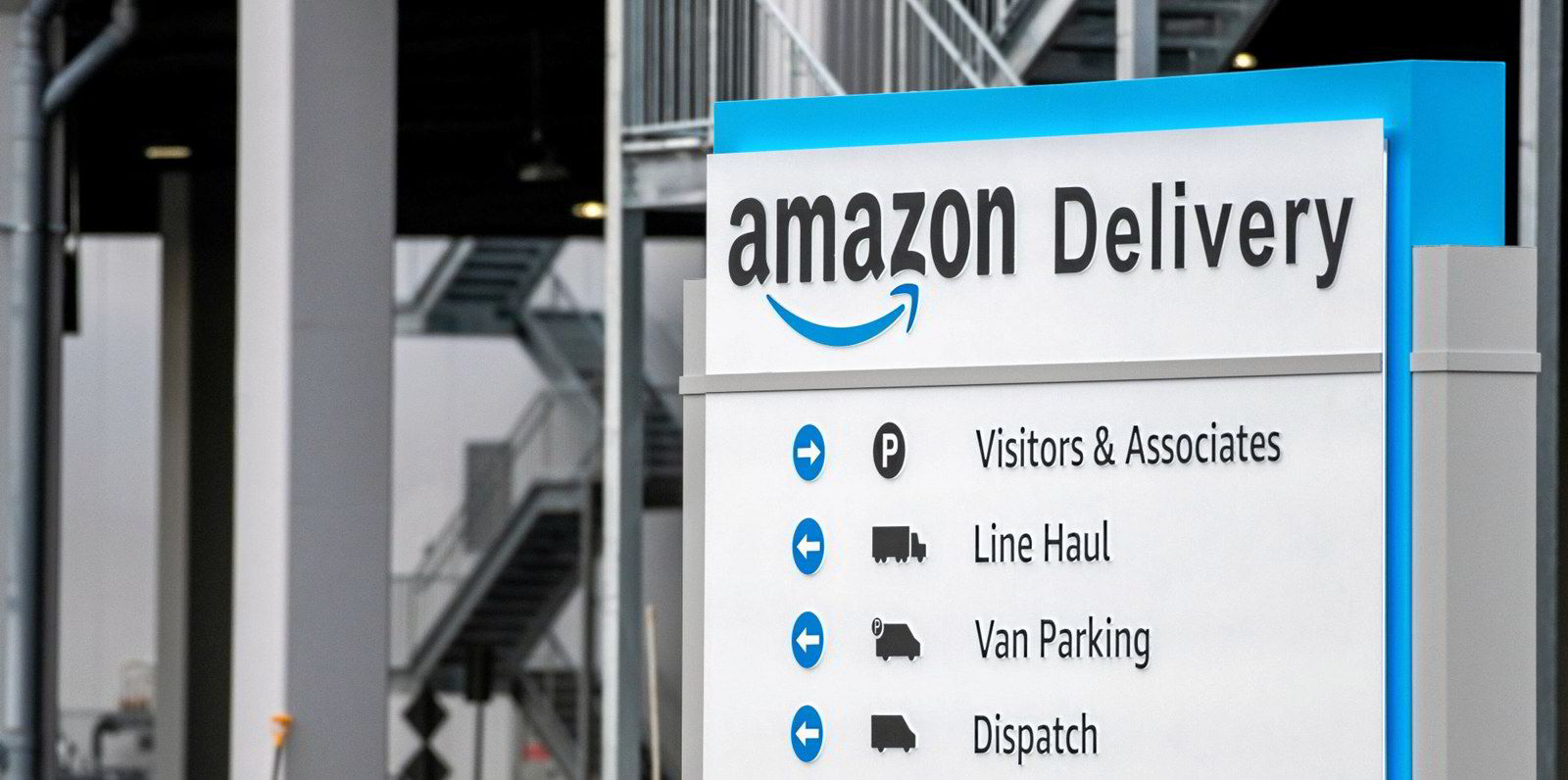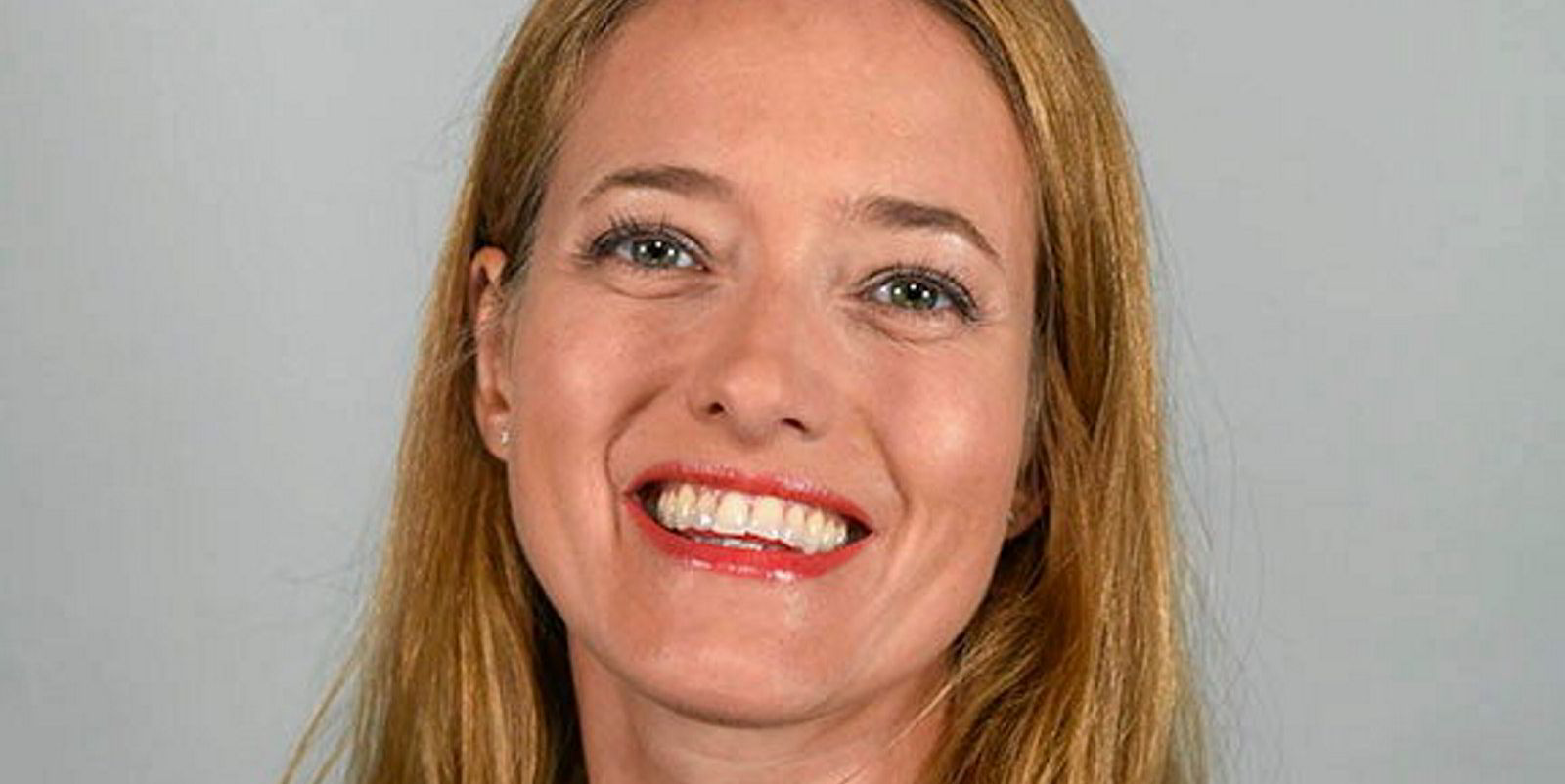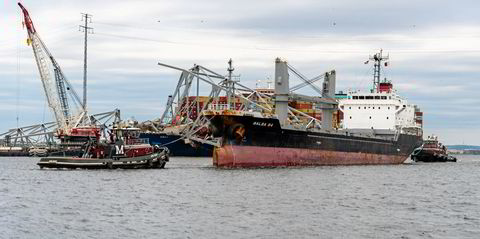Liner operators representing a major share of global container shipping have shown strong interest in achieving the goal of zero-emission shipping services.
Ingrid Irigoyen, chief executive of the Zero Emission Maritime Buyers Alliance (Zemba) started sending out requests for proposals (RFPs) from liner operators in September.
Zemba, an initiative of Cargo Owners for Zero Emission Vessels (Cozev) and facilitated by the US Aspen Institute Energy & Environment Program, expects to choose the winner early next year after accepting bids until the end of November.

“While I am constrained in what I can share at this point in the open RFP process, I can confirm that several large global carriers have signalled their intent to bid, and in aggregate they represent almost one-third of the total volume of the top 10 largest shipping lines, which themselves make up 82% of the total market,” Irigoyen tells TW+.
“When considering the total global container market, including smaller carriers, companies that have expressed intent to bid represent over 20% of global container volume.
“In light of the fact that this is our first round tender, using an approach that hasn’t been done before in this sector, and the emissions reduction goal we’ve set forth is quite bold, these figures leave our Zemba team feeling quite optimistic at this point in the process.”
Zemba, which consists of 20 major retailers such as Amazon and Ikea, requires liner operators to provide container ships using fuels that offer emissions reductions of at least 90%.
Zemba-compliant fuels must also come from residual or by-product feedstock sources, including hydrogen and captured CO2, according to Cozev.
Fuel suppliers must be certified to a relevant sustainability standard that is accredited by the Roundtable on Sustainable Biomaterials, the International Sustainability and Carbon Certification or another European Union-recognised standard holder.
Fuel suppliers must be certified to a relevant sustainability standard that is accredited by the Roundtable on Sustainable Biomaterials, the International Sustainability and Carbon Certification or another European Union-recognised standard holder.
Further, the fuel must be made using renewables or another non-fossil, low-carbon energy source, and it must be scalable enough to make “a meaningful contribution” to the decarbonisation of the maritime industry as determined by Zemba.
It must also address any safety concerns that arise as a result of using the fuel to power a vessel.
The chosen liner operator will receive a committed portion of Zemba member freight buyers’ business and credibility as a company that is serious about achieving zero-emission shipping, Irigoyen says.
“The winner of the RFP will be able to say with confidence that they are offering the best deal on the greenest shipping. That is a tremendous advantage in a market that is increasingly under pressure to reduce its climate impact.”
Liner operators that submitted RFPs had to meet a stringent list of requirements and were interviewed extensively to be considered during the bidding process.
“We ask a lot of details about how the fuel was produced, what are some of the key feedstocks. We will ask for sustainability certification,” she says.
“We want to ensure that our members are getting real emissions reductions that they’re paying for that are credible in reaching their climate targets.”
Irigoyen came up with the idea for Zemba as associate director of ocean & climate for the Aspen Institute programme.
“My skill set is in bringing together people from diverse perspectives, different interests, to solve complex sustainability problems,” she says.
She coupled those skills with experience in the sustainable seafood business to launch Zemba this year.
“That was my first experience witnessing the power of the corporate buyer,” she says. “A lot of the work in the sustainable seafood stage was also quite collaborative.”
In forming Zemba, Irigoyen asked members of the maritime industry to identify the challenges to attaining zero emissions.
“I emerged with a very long list. When you start peeling the layers of the onion back, it became clear that the cost difference and the lack of demand were the core of the challenge.”
She says the demand for zero-emission shipping among cargo owners was low because maritime was a small part of their carbon footprint and changes were costly to implement.
“We realised to overcome that, we really needed to bring cargo owners together and make the case to them why it is essential for them to invest in green shipping now in order to get carriers, shipowners, fuel producers, ports and policymakers activated,” she says.
“We realised we couldn’t wait any longer. We had to get this market in motion now.”






